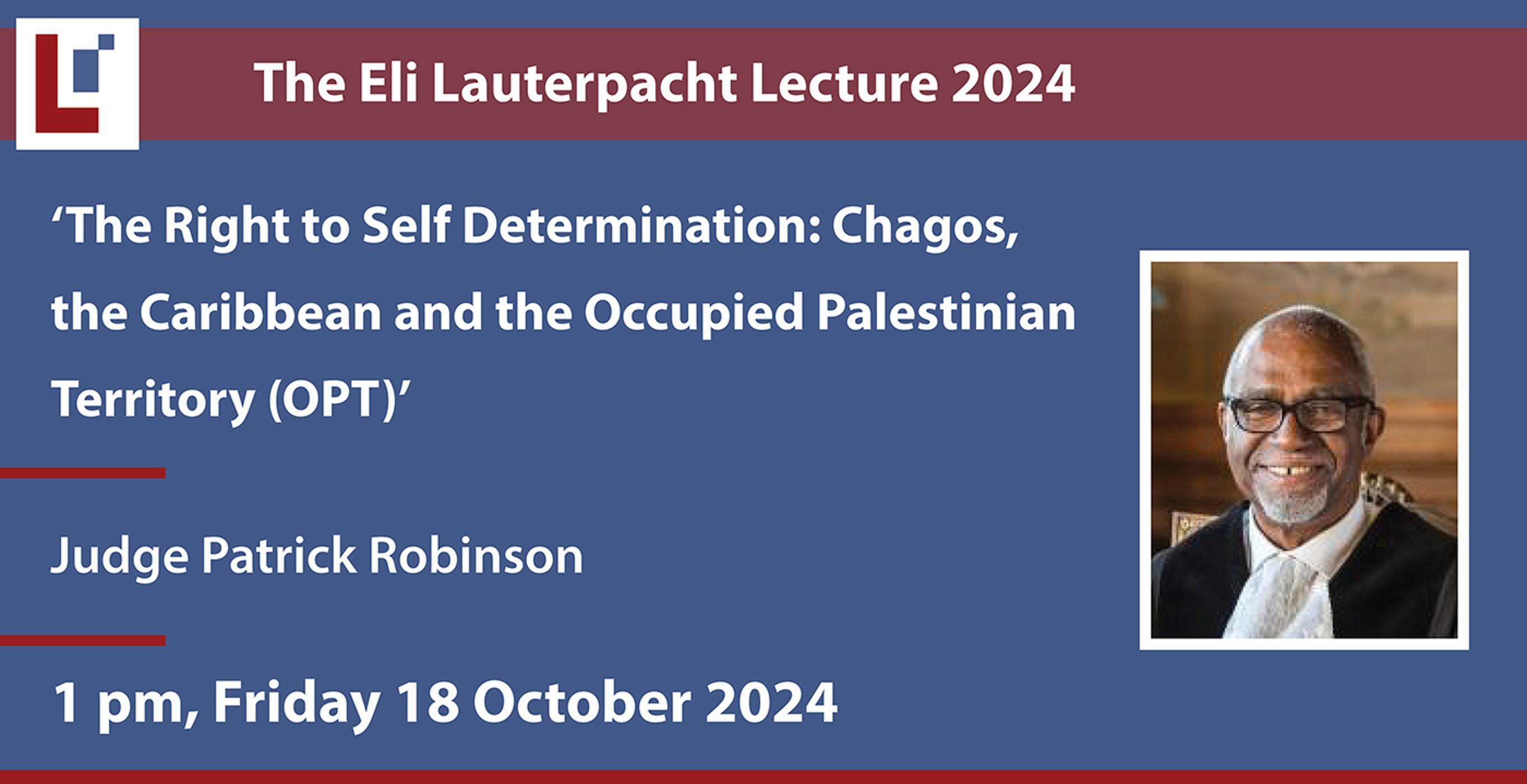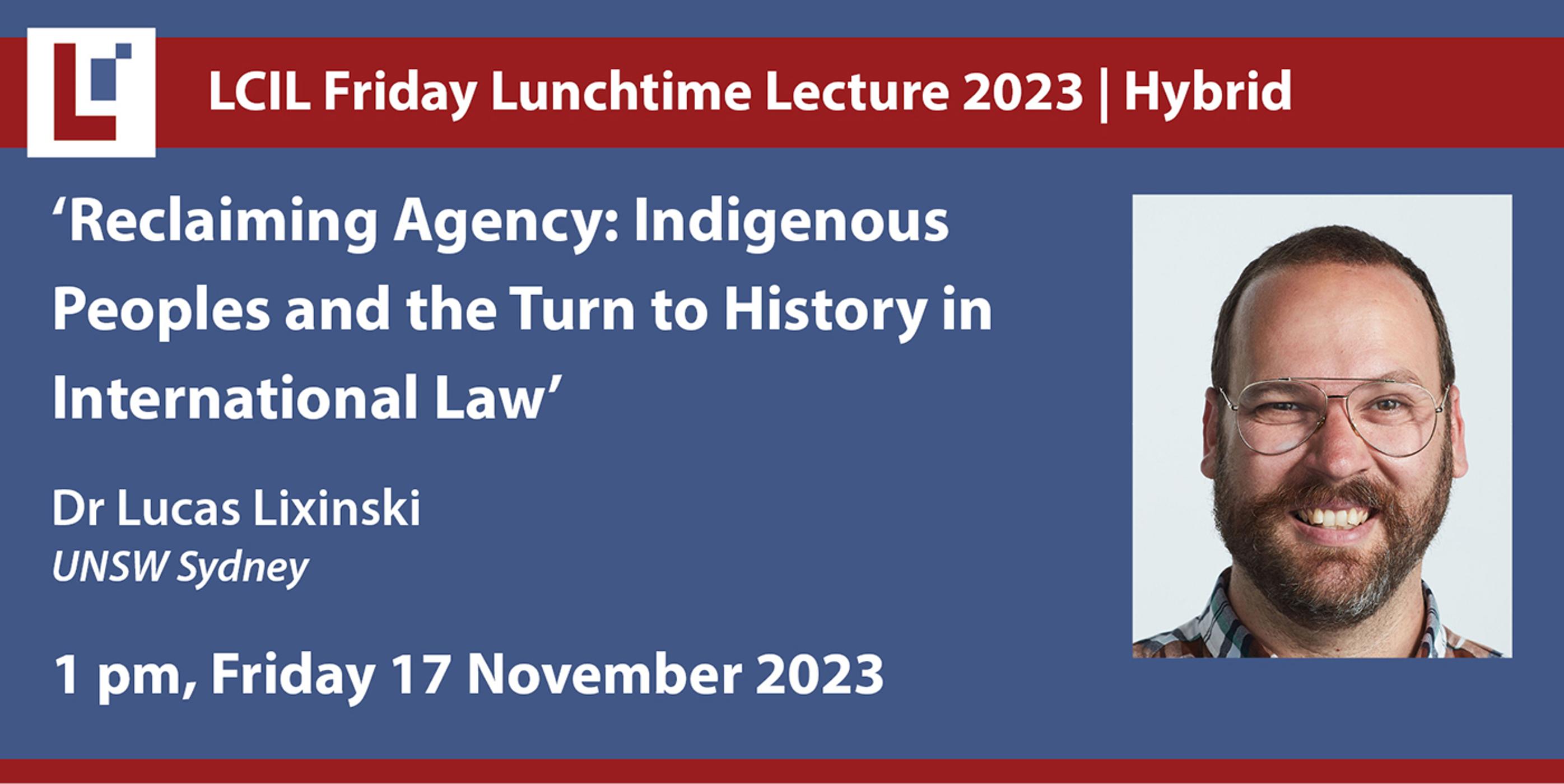Hersch Lauterpacht Memorial Lectures 2024: 'International Borders in an Interdependent World' - Lecture 3: 'Where Cooperative Border Governance (Should) Lead: Interstate Borders as Though People Mattered' - Prof Beth Simmons, University of Pennsylvania
Update: 2024-03-19 1
1
Description
The Hersch Lauterpacht Memorial Lecture is an annual three-part lecture series given in Cambridge to commemorate the unique contribution to the development of international law of Sir Hersch Lauterpacht. These lectures are given annually by a person of eminence in the field of international law. This year's lecture was given by Prof Beth Simmons, University of Pennsylvania.
Summary: The Golden Age of globalization has reached an end in the popular and political imagination. In its place has arisen growing anxiety about state borders. What is the evidence of such a shift? What are the causes and consequences? What answers does international law have for how international borders should be governed, especially as human mobility intensifies? Traditional international law defining and settling borders will not suffice to answer these questions. Instead, the lectures explore a different approach that views international borders as institutions that obligate states to manage the tensions that territorial governance implies in an interdependent world.
6 pm Thursday 14 March 2024
Lecture 3: Where Cooperative Border Governance (Should) Lead: Interstate Borders as Though People Mattered
The lecture culminates by addressing ways forward in the light of Lectures 1 and 2. First, it explores the ways that border unilateralism has had some results that are inconsistent with international human rights. Second, it suggests possibilities for addressing rights violations committed in the name of “border sovereignty.” While international law is not equipped to address all of the injustices and anxieties associated with international borders, it does offer cooperative levers and lenses that can help address and arrest some of its worst consequences.
Chair: Eyal Benvenisti
Summary: The Golden Age of globalization has reached an end in the popular and political imagination. In its place has arisen growing anxiety about state borders. What is the evidence of such a shift? What are the causes and consequences? What answers does international law have for how international borders should be governed, especially as human mobility intensifies? Traditional international law defining and settling borders will not suffice to answer these questions. Instead, the lectures explore a different approach that views international borders as institutions that obligate states to manage the tensions that territorial governance implies in an interdependent world.
6 pm Thursday 14 March 2024
Lecture 3: Where Cooperative Border Governance (Should) Lead: Interstate Borders as Though People Mattered
The lecture culminates by addressing ways forward in the light of Lectures 1 and 2. First, it explores the ways that border unilateralism has had some results that are inconsistent with international human rights. Second, it suggests possibilities for addressing rights violations committed in the name of “border sovereignty.” While international law is not equipped to address all of the injustices and anxieties associated with international borders, it does offer cooperative levers and lenses that can help address and arrest some of its worst consequences.
Chair: Eyal Benvenisti
Comments
Top Podcasts
The Best New Comedy Podcast Right Now – June 2024The Best News Podcast Right Now – June 2024The Best New Business Podcast Right Now – June 2024The Best New Sports Podcast Right Now – June 2024The Best New True Crime Podcast Right Now – June 2024The Best New Joe Rogan Experience Podcast Right Now – June 20The Best New Dan Bongino Show Podcast Right Now – June 20The Best New Mark Levin Podcast – June 2024
In Channel
























